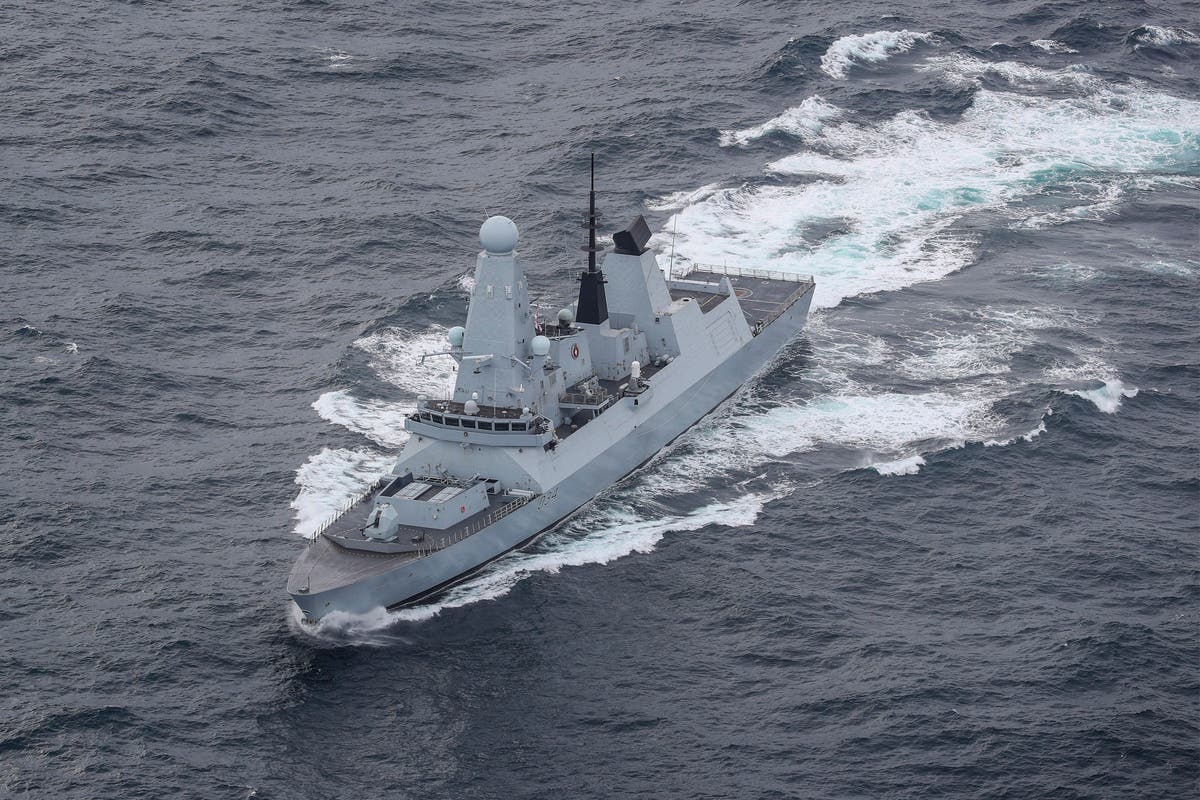The HMS Diamond shot down the drone - the first time in decades that the Royal Navy has taken out an aerial target in anger
A Royal Navy destroyer warship has shot down a suspected attack drone over the Red Sea, the Defence Secretary has said.
The HMS Diamond was only sent to the region two weeks ago amid growing international concern about the threat to shipping.
The Type 45 destroyer was said to have destroyed the suspected attack drone targeting merchant shipping - with a Sea Viper missile.
It is believed to be the first time that the Royal Navy has shot down an aerial target in anger since the First Gulf War in 1991.
Grant Shapps said it was believed merchant shipping in the Red Sea was the intended target, in the latest such confrontation in the key global shipping route.



I did not know that. I believe you, but that seems like a pretty strange word to use. I couldn’t find any references to it online, either… I wonder if it’s colloquial.
EDIT: I did manage to find some references to the phrase with a little more digging. I wasn’t getting far with “anger” or “in anger,” but the phrase “fire in anger” started leading to some interesting results.
Dictionaries - MW and Dictionary.com don’t contain the phrase “fire in anger” or “in anger,” and their entries for “anger” don’t support this usage. Oxford has an entry for “in anger,” which just means “when angry.”
Cambridge Dictionary’s entry for “anger” doesn’t support this use either, but it does contain the phrase “in anger” per se, which notes that the phrase is a) primarily in UK English, and b) is considered an idiom… i.e. not an ordinary use of the word “anger.” Interestingly, it doesn’t mention the military context, and uses examples (mostly) unrelated to warfighting.
Wiktionary contains “fire in anger” (but not “in anger”). It’s described as a military idiom consistent with the usage in OP’s article. It doesn’t suggest usage outside of that context.
Etymology - I can’t find any compelling etymology of “fire in anger” or Cambridge’s idiomatic sense of “in anger,” and the etymology of the word “anger” itself (“grief, sorrow,” cognate with words in other languages for “regret”) doesn’t really help. I have my guesses, but who knows?
Conclusion - It seems to be chiefly British, largely but not exclusively used in a military context, and it’s not so ubiquitous as to be represented in most dictionaries. Definitely exists as a phrase though, and perhaps in some circles, it’s very common. TIL.
No, it’s entirely normal and part of standard usage. You probably don’t read very much.
Lol dammit, I knew that asking about a term that I hadn’t heard before would out me as completely illiterate. Caught me 😏
Anyway I dug a little more and made an edit above, if you’re interested.